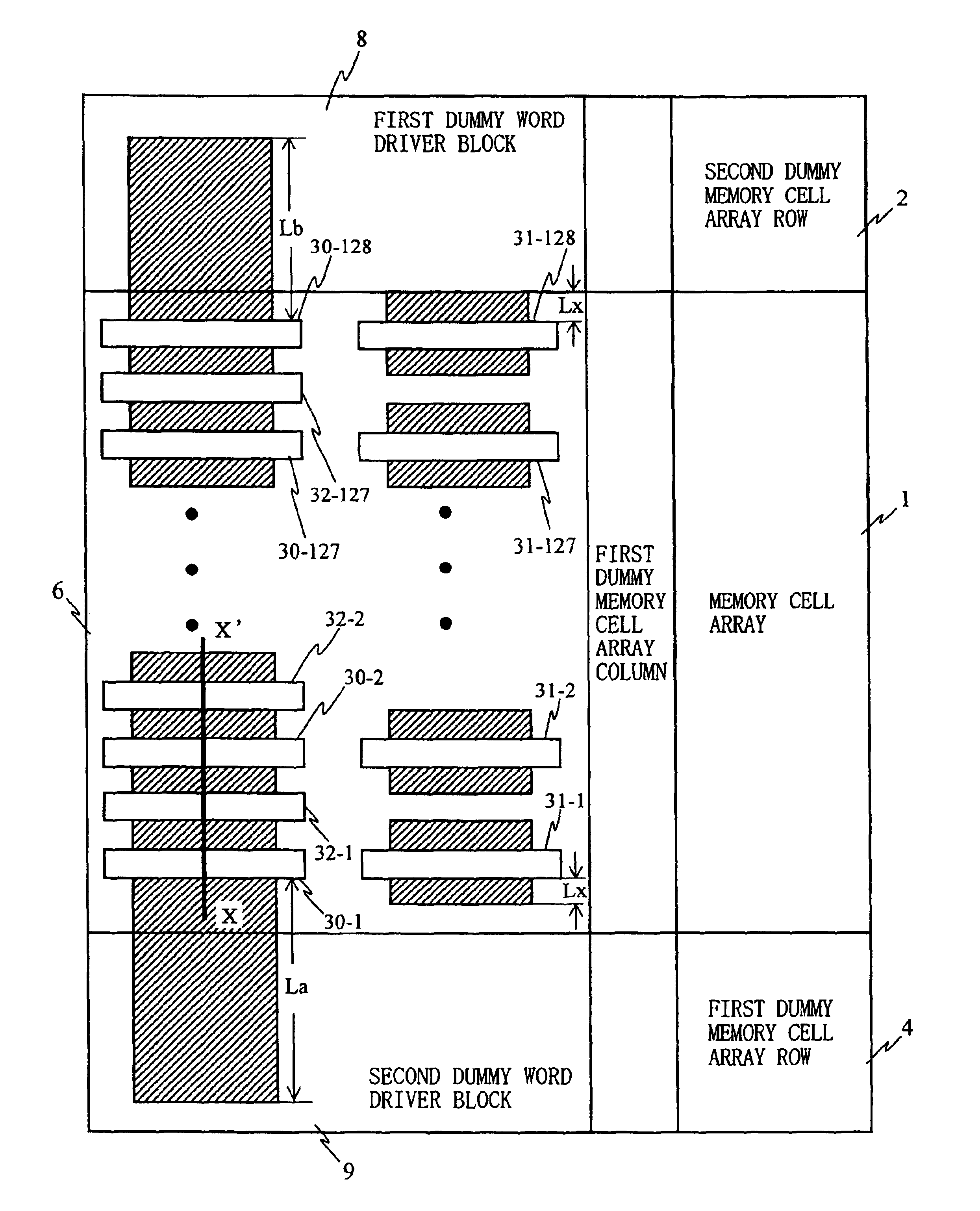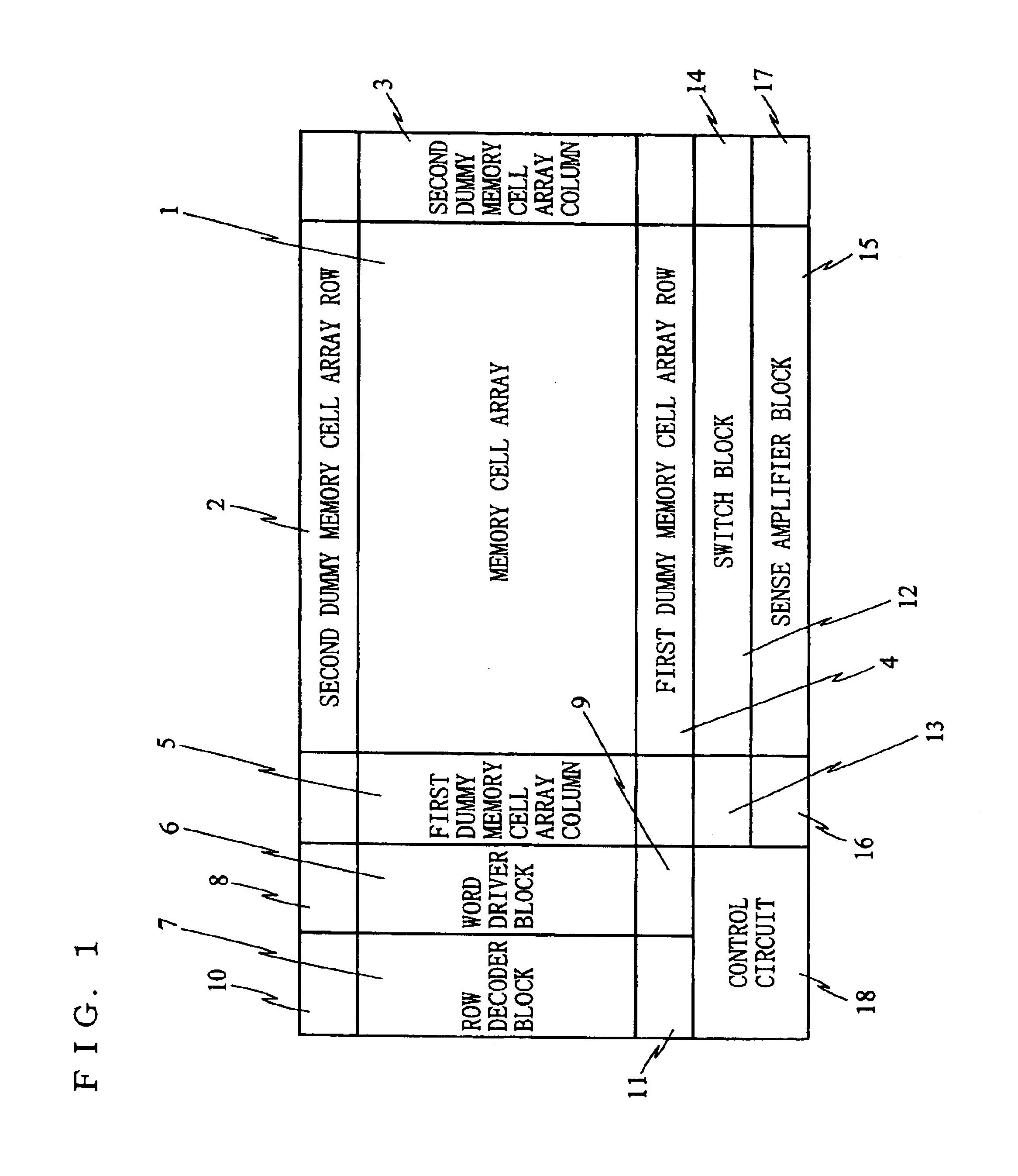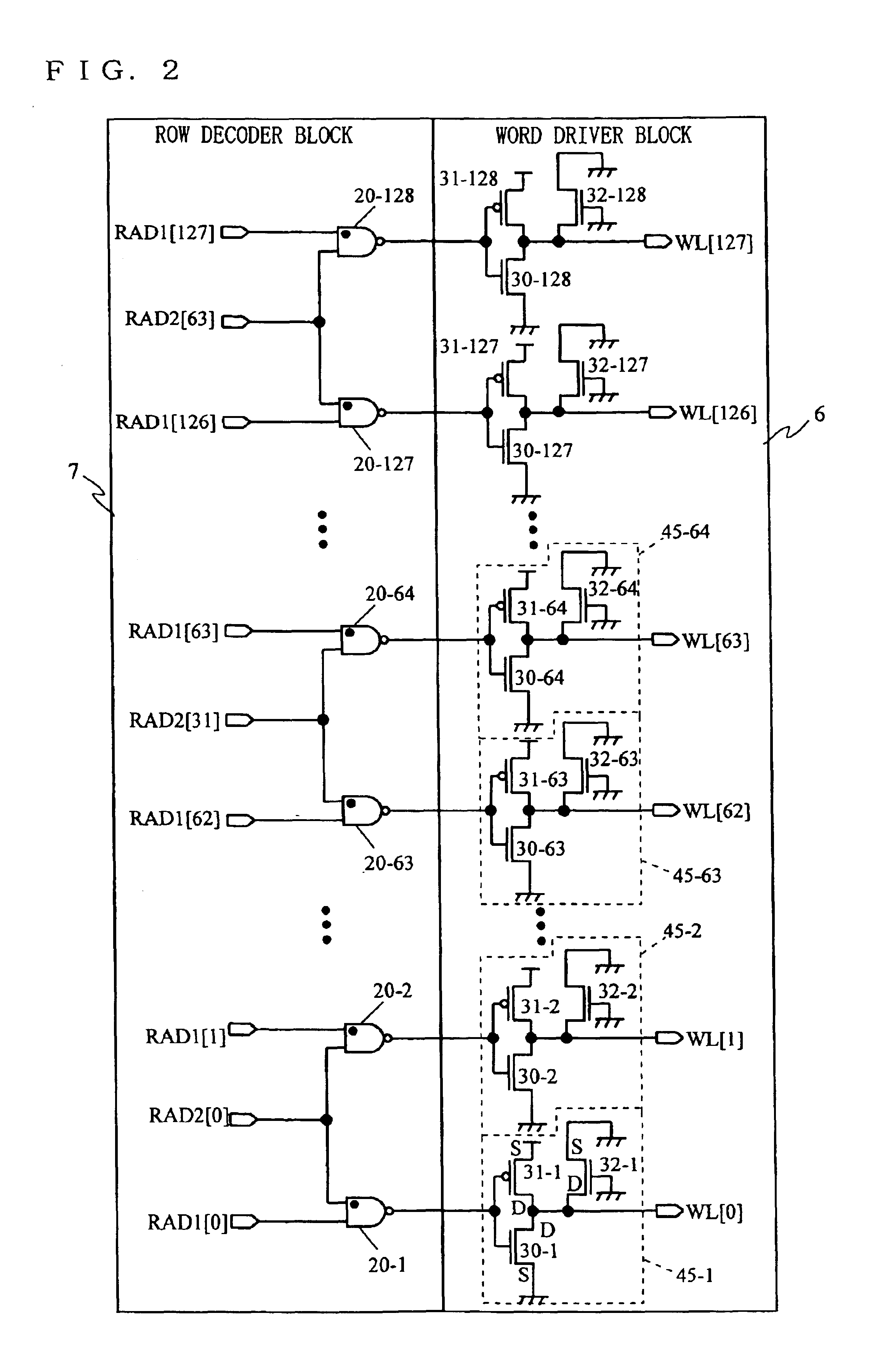Semiconductor device and semiconductor memory device
a semiconductor memory and semiconductor technology, applied in semiconductor devices, digital storage, instruments, etc., can solve the problems of hindering the compactness of a semiconductor memory device, large number of defects in the vicinity of an interface between, etc., and achieve the effect of stabilizing the circuit operation
- Summary
- Abstract
- Description
- Claims
- Application Information
AI Technical Summary
Benefits of technology
Problems solved by technology
Method used
Image
Examples
Embodiment Construction
[0050]With reference to the drawings, a semiconductor memory device according to an embodiment of the present invention is described below. FIG. 1 is a block diagram showing the entire configuration of a semiconductor memory device according to the present embodiment. The semiconductor memory device shown in FIG. 1 is a 32-bit Static Random Access Memory (SRAM).
[0051]The semiconductor memory device shown in FIG. 1 includes a memory cell array 1, a second dummy memory cell array row 2, a second dummy memory cell array column 3, a first dummy memory cell array row 4, a first dummy memory cell array column 5, a word driver block 6, a row decoder block 7, a first dummy word driver block 8, a second dummy word driver block 9, a first dummy row decoder block 10, a second dummy row decoder block 11, a switch block 12, a first dummy switch block 13, a second dummy switch block 14, a sense amplifier block 15, a first dummy sense amplifier block 16, a second dummy sense amplifier block 17, an...
PUM
 Login to View More
Login to View More Abstract
Description
Claims
Application Information
 Login to View More
Login to View More - R&D
- Intellectual Property
- Life Sciences
- Materials
- Tech Scout
- Unparalleled Data Quality
- Higher Quality Content
- 60% Fewer Hallucinations
Browse by: Latest US Patents, China's latest patents, Technical Efficacy Thesaurus, Application Domain, Technology Topic, Popular Technical Reports.
© 2025 PatSnap. All rights reserved.Legal|Privacy policy|Modern Slavery Act Transparency Statement|Sitemap|About US| Contact US: help@patsnap.com



